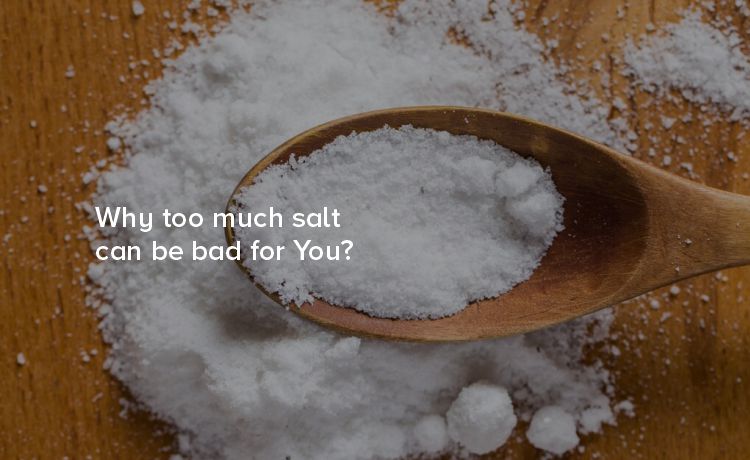
We’ve all heard the saying, “You are what you eat,” but have you ever stopped to consider just how true this is? For many of us, salt is a staple in our diets. It adds flavor to our meals and preserves our food. But while a pinch here and there might seem harmless, consuming too much salt can pose serious health risks.
Salt, or sodium chloride, is essential for human health. It helps maintain fluid balance, supports nerve function, and aids in muscle contractions. However, the amount of salt we need is surprisingly small. Most health organizations recommend consuming no more than 2,300 milligrams of sodium per day, equivalent to about one teaspoon of table salt. Despite this, the average American consumes nearly 3,400 milligrams daily, far exceeding the recommended limit.
Sodium plays a crucial role in maintaining homeostasis. It helps regulate blood pressure, blood volume, and the balance of fluids in and out of cells. It also contributes to the proper function of muscles and nerves. While these functions are vital, they can easily be disrupted by excessive sodium intake, leading to a host of health problems.
When you consume too much salt, your body retains extra water to dilute the excess sodium. This increases the volume of blood in your bloodstream, putting added pressure on your heart and blood vessels. Over time, this can lead to hypertension, or high blood pressure, which is a major risk factor for heart disease and stroke. Studies show that reducing sodium intake can significantly lower blood pressure, thereby reducing the risk of cardiovascular events.
The kidneys are responsible for filtering excess sodium out of the body. When sodium levels are too high, the kidneys must work harder to expel it. Over time, this increased workload can lead to kidney damage and a decreased ability to filter blood effectively. Chronic kidney disease is a serious condition that can result from years of high sodium consumption, ultimately leading to kidney failure if not managed properly.
Excessive salt intake can also affect bone health. High sodium levels can cause your body to lose calcium, a vital mineral for bone strength. When calcium is lost through urine, your body pulls calcium from your bones to maintain necessary levels in the blood, weakening the bones over time. This can increase the risk of osteoporosis, a condition characterized by brittle and fragile bones.
Recent studies have also linked high salt intake to an increased risk of stomach cancer. Salt can damage the lining of the stomach, leading to inflammation and the growth of harmful bacteria like Helicobacter pylori. These bacteria can cause stomach ulcers and increase the risk of stomach cancer. Reducing salt consumption can help protect the stomach lining and lower the risk of developing this type of cancer.
One of the more immediate effects of consuming too much salt is fluid retention and bloating. Sodium causes the body to retain water, leading to swelling and discomfort, especially in the hands, feet, and abdomen. This can make you feel bloated and uncomfortable, impacting your overall well-being and daily activities.
Salt isn’t just in the obvious culprits like chips and fast food. It’s also hidden in many processed and packaged foods, including bread, cereals, and even sweets. Reading nutrition labels can help you identify and avoid high-sodium foods. Look for terms like “sodium,” “salt,” and “soda” on ingredient lists, and opt for low-sodium or no-salt-added versions whenever possible.
Reducing your salt intake doesn’t mean you have to sacrifice flavor. Here are some practical tips to help you cut back:
Cook at Home: Preparing meals at home allows you to control the amount of salt in your food.
Use Herbs and Spices: Enhance flavor with herbs, spices, and other seasonings instead of salt.
Read Labels: Always check the sodium content on nutrition labels and choose lower-sodium options.
Cutting back on salt can have numerous health benefits. Lowering your sodium intake can help reduce blood pressure, decrease the risk of heart disease and stroke, improve kidney function, and strengthen bones. It can also help you feel less bloated and more comfortable in your daily life.
Eating out can be challenging when trying to reduce salt intake, but it’s not impossible. Here are some tips:
Ask for Nutrition Information: Many restaurants provide nutrition information upon request.
Request No Added Salt: Ask for your meal to be prepared without added salt.
Choose Fresh Over Processed: Opt for fresh ingredients and dishes that are less likely to be high in sodium.
Too much salt can be detrimental to your health high blood pressure treatment in Hyderabad, leading to issues like high blood pressure, kidney damage, and even stomach cancer. However, by being mindful of your salt intake and making healthier choices, you can protect yourself from these risks. Start by reading labels, cooking at home, and choosing fresh over processed foods.